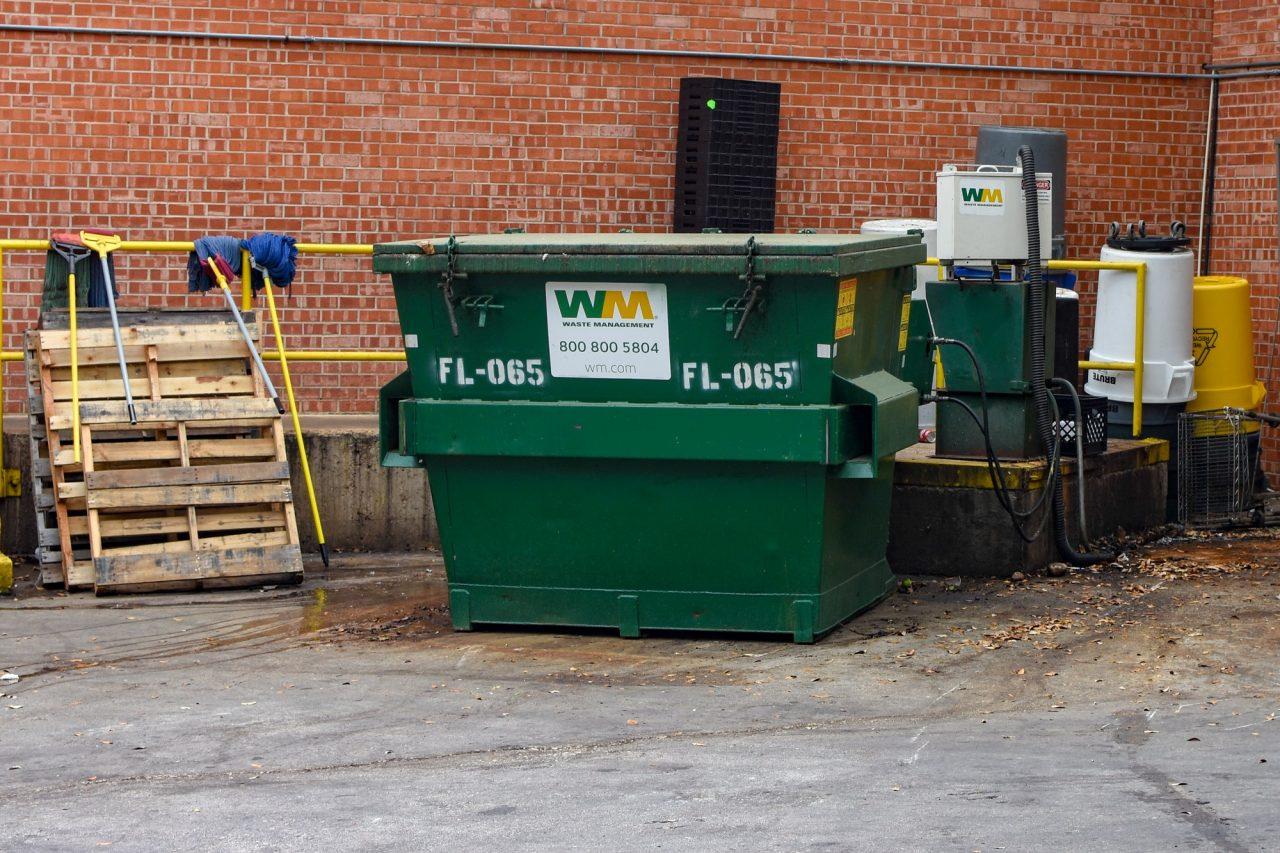Photo by Genevieve Humphreys
Dining services has cut down compostable pre-consumer waste from 625 pounds per week to 500 pounds per week. The current total amount of waste per week at Mabee Dining Hall is approximately four tons, according to Charles Robles, food service director for Aramark. This number has decreased from 4.23 tons per week in April of 2018.
In addition to the four tons of waste that end up in the dumpster, approximately 500 pounds of cardboard and aluminum cans are recycled each week.
Robles explained that the biggest way that dining services reduces waste at Mabee is through forecasting.
“We watch trends and eating habits, and it helps us predict how much food to produce,” Robles wrote in an email interview. “It helps from over-producing and keeps leftovers down to a minimum. Most of the waste is from people taking more than they consume; once a meal is prepped and served the leftover becomes waste (direct to the landfill). Our prep waste is mostly composted and even most of the packaging we deal with is recycled; we have some waste on the back of the kitchen but not nearly the amount of waste that comes from uneaten consumer items.”
Because of strict regulations on what can be composted, only pre-consumer waste is currently composted at Mabee. This means that food that is leftover is not composted.
“We divert pre-consumer food prep scraps into the earth tubs,” said Sharon Curry, sustainability coordinator. “That is our composting program. It’s the only composting program we currently have on campus. It’s only pre-consumer, so the peelings off the vegetables when they’re prepping vegetables. Once it goes onto a tray and out of the kitchen, it doesn’t go back into that program simply because we maintain really strict control on what goes in there. Since we’re operating at capacity, we really can’t add more.”
According to Robles, San Antonio’s local sustainability measures are not sufficient for supporting dining operations at the scale of Trinity.
“The community around San Antonio is doing a good job of becoming more green, but we run into issues that there just aren’t enough resources for operations our size for them to handle,” Robles wrote.
While the local government may not be worried about sustainability at Mabee, students in this semester’s senior environmental studies seminar are working on a project that is focused on measuring and reducing food waste at Mabee. Senior Sarah Heller is one of four students in the seminar taught by Gregory Hazleton, professor of English.
“We set up a table, and as people are coming by, we have a scale and a bucket on the scale,” Heller said. “When people are done, they’ll put their food into the bucket, and we wait until the bucket fills up, and we measure per hour how much waste in pounds is measured per hour. It’s a three-hour period from 11-2. We’re not measuring napkins, so those have to go in the trash.”
Heller and the other students involved in the project measured food waste for two weeks. During the second week, they put up transparency tags to help students better understand the environmental impact of the food that they are eating.
“The transparency tags explain where the food is from, how much carbon was emitted to get it to your plate, and whether or not it’s local,” Heller said. “We stuck them with tape on the different food stations, or on baskets of fruit. Students will hopefully be able to see them and change their actions. There are some foods we weren’t tagging just because it would be way too hard to do meals with a lot of different ingredients. For the most part, we’re just tagging fruits and vegetables and meat. They’re only up during the lunch period when we’re measuring and then we take them off.”
One of the broader goals of the project is to connect Mabee with local organizations that can help to reduce the amount of waste.
“We hope that from our study we will get in touch with this composting organization, Compost Queens, to collaborate and they can take our extra post-consumer waste,” Heller said. “Also pre-consumer, extra bread and any kind of food that’s overproduced that people aren’t eating at the end of the day that hasn’t been touched, that can be donated to homeless shelters; Haven for Hope is one of them.”
Curry recommended that students be more conscious of their food choices in order to reduce waste.
“Don’t take more than what you’re going to eat,” Curry said. “I believe dining services is very cooperative if you want a half portion or something. Just be aware of the waste, don’t take more napkins than what you need, just be aware of what your personal habits are because it has a cumulative effect. Anything we can do as an individual actually starts to add up in a really big way.”
Robles is proud of the improvements that have been made in reducing waste at Mabee.
“We are extremely proud of how much of what we try to do on a daily basis helps the environment and supports the amazing push here on campus to reduce waste,” Robles wrote. “It’s exciting to see how we can keep getting better at sourcing, reducing and working to lessen our global impact.”







